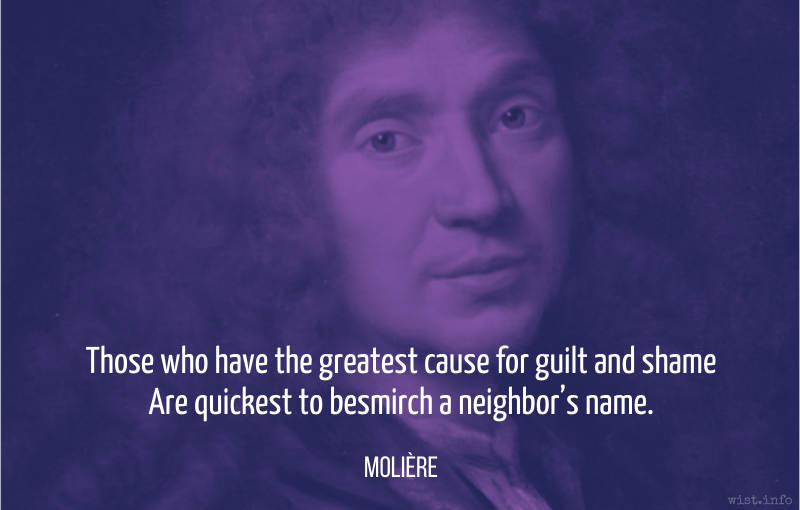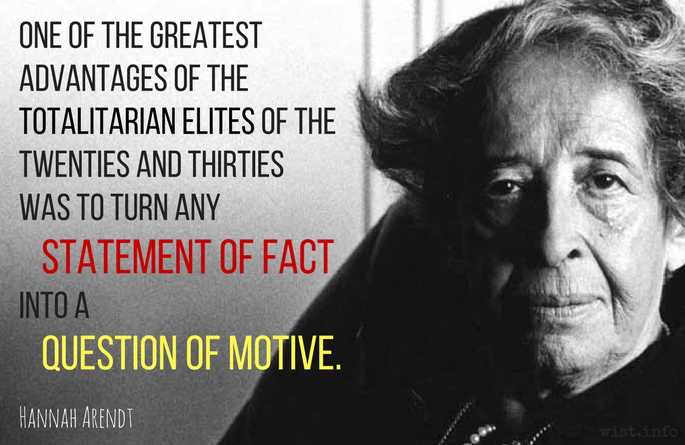Nearly all of history is only a string of horrors. If tyrants dismiss it while they are alive, it seems that their successors allow people to transmit to posterity the crimes of their predecessors, in order to offer diversion away from the horror that they inspire themselves.
[Presque toute l’Histoire n’est qu’une suite d’horreurs. Si les tyrans la détestent, tandis qu’ils vivent, il semble que leurs successeurs souffrent qu’on transmette à la postérité les crimes de leurs devanciers, pour faire diversion à l’horreur qu’ils inspirent eux-mêmes.]
Nicolas Chamfort (1741-1794) French writer, epigrammist (b. Nicolas-Sébastien Roch)
Products of Perfected Civilization [Produits de la Civilisation Perfectionée], Part 1 “Maxims and Thoughts [Maximes et Pensées],” ch. 8, ¶ 474 (1795) [tr. Siniscalchi (1994)]
(Source)
(Source (French)). Alternate translations:
Nearly all History is a procession of horrors; but, although tyrants hate History in their own lifetime, a general transmission of such crimes is not unpleasing to their descendants, for it distracts attention from their own.
[tr. Mathers (1926)]
Almost the whole of history is nothing but a series of horrors. If tyrants detest it while they are alive, their successors seem willing to allow the crimes of their predecessors to be transmitted to posterity, to divert attention from the horror that they themselves inspire.
[tr. Merwin (1969)]
Almost the whole of history is nothing more than a series of horrors. If tyrants detest it while they are alive, it seems that their that their successors suffer that the crimes of their predecessors should be laid at the door of posterity, in order to divert attention from the horrors to which they themselves give rise.
[tr. Pearson (1973)]
Almost all of history is a story of horror. If tyrants condemn it during their lifetime, their successors seem to allow the crimes of their predecessors to be passed on to posterity, thereby diverting attention from the horror they themselves inspire.
[tr. Parmée (2003)]
Quotations about:
diversion
Note not all quotations have been tagged, so Search may find additional quotes on this topic.
DORINE: Those who have the greatest cause for guilt and shame
Are quickest to besmirch a neighbor’s name.[Ceux de qui la conduite offre le plus à rire
Sont toujours sur autrui les premiers à médire.]Molière (1622-1673) French playwright, actor [stage name for Jean-Baptiste Poquelin]
Tartuffe, Act 1, sc. 1 (1664) [tr. Wilbur (1963)]
(Source)
Alt. trans.:Original French.
- "They whose own conduct is the most ridiculous are always the first to slander others." [tr. Van Laun (1876)]
- "Since they are always talked about, / They're sniffing other scandal out." [tr. Bolt (2002)]
- "Those whose conduct gives room for talk / Are always the first to attack their neighbors." [Bartlett's]
‘Tis hard bewildering riddles to compose
And labour lost to work at nonsense prose.[Turpe est difficiles habere nugas,
Et stultus labor est ineptiarum.]Martial (AD c.39-c.103) Spanish Roman poet, satirist, epigrammatist [Marcus Valerius Martialis]
Epigrams [Epigrammata], Book 2, epigram 86 (2.86.9-10) (AD 86) [tr. Francis & Tatum (1924), #105]
(Source)
Discussing writing elaborate or highly stylized poetry forms. (Source (Latin)). Alternate translations:
Disgraceful 't is unto a poet's name
Difficult toys to make his highest am:
The labour's foolish that doth rack the brains
For things have nothing in them, but much pains.
[tr. Killigrew (1695)]
How foolish is the toil of trifling cares.
[tr. Johnson (1750); he credits the translation Elphinston]
How pitifull the boast of petty feats!
How idle is the toil of mean conceits!
[tr. Elphinston (1782), 2.76]
It is disgraceful to be engaged in difficult trifles; and the labour spent on frivolities is foolish.
[tr. Amos (1858), 2.19]
It is absurd to make one's amusements difficult; and labor expended on follies is childish.
[tr. Bohn's Classical (1859)]
'Tis mean and foolish to assign
Long care and pains to trifles light.
[tr. Webb (1879)]
Disgraceful ’tis to treat small things as difficult;
‘Tis silly to waste time on foolish trifles.
[ed. Harbottle (1897)]
'Tis degrading to undertake difficult trifles; and foolish is the labour spent on puerilities.
[tr. Ker (1919)]
'Tis hard bewildering riddles to compose
And labor lost to work at nonsense prose.
[tr. Francis & Tatum (1924)]
It's demeaning to make difficulties out of trifles, and labor over frivolities is foolish.
[tr. Shackleton Bailey (1993)]
It is absurd to make trifling poetry difficult, and hard work on frivolities is foolish.
[tr. Williams (2004)]
The Latin phrase was used by Addison as the epigram of The Spectator #470 (29 Aug 1712).
One of the greatest advantages of the totalitarian elites of the twenties and thirties was to turn any statement of fact into a question of motive.
Hannah Arendt (1906-1975) German-American philosopher, political theorist
(Spurious)
This is frequently cited to Arendt, often to The Origins of Totalitarianism, (1951), but is not found as such in her works. The source appears to be a paraphrase of Arendt in a 1999 New Yorker article.
Stuart Elden suggested the following from The Origins of Totalitarianism, Part 3, ch. 11, might be original quotation the paraphrase was built on, though the overall meaning is different:
The elite is not composed of ideologists; its members’ whole education is aimed at abolishing their capacity for distinguishing between truth and falsehood, between reality and fiction. Their superiority consists in their ability immediately to dissolve every statement of fact into a declaration of purpose.
Business and pleasure, rightly understood, mutually assist each other, instead of being enemies, as silly or dull people often think them. No man tastes pleasures truly who does not earn them by previous business; and few people do business well who do nothing else.
Lord Chesterfield (1694-1773) English statesman, wit [Philip Dormer Stanhope]
Letter to his son, #189 (7 Aug 1749)
(Source)
The secret of my incredible energy and efficiency in getting work done is a simple one. I have based it very deliberately on a well-known psychological principle and have refined it so that it is now almost too refined. I shall have to begin coarsening it up again pretty soon. The psychological principle is this: anyone can do any amount of work, provided it isn’t the work he is supposed to be doing at that moment.
When I play with my cat, who can say that it is not she amusing herself with me more than I with her?
[Quand je me jouë à ma chatte, qui sçait, si elle passe son temps de moy plus que je ne fay d’elle?]
Michel de Montaigne (1533-1592) French essayist
“Apology for Raymond Sebond [Apologie de Raimond de Sebonde]” (1588–1592), Essays, Book 2, ch. 12 (1595) [tr. Ives (1925)]
(Source)
(Source (French)). Alternate translations:
When I am playing with my Cat, who knowes whether she have more sporte in dallying with me, then I have in gaming with hir?
[tr. Florio (1603)]
When I play with my cat, who knows whether puss is not more diverted with me than I am with puss?
[tr. Cotton (1686)]
When I play with my cat who knows whether I do not make her more sport than she makes me?
[tr. Cotton/Hazlitt (1877)]
When I play with my cat, who knows if I am not a pastime to her more than she is to me.
[tr. Frame (1943)]
When I play with my cat, how do I know that she is not passing time with me rather than I with her?
[tr. Screech (1987)]
Boredom is a vital problem for the moralist, since at least half the sins of mankind are caused by the fear of it.
Bertrand Russell (1872-1970) English mathematician and philosopher
The Conquest of Happiness, ch. 4 “Boredom and Excitement” (1930)
(Source)












